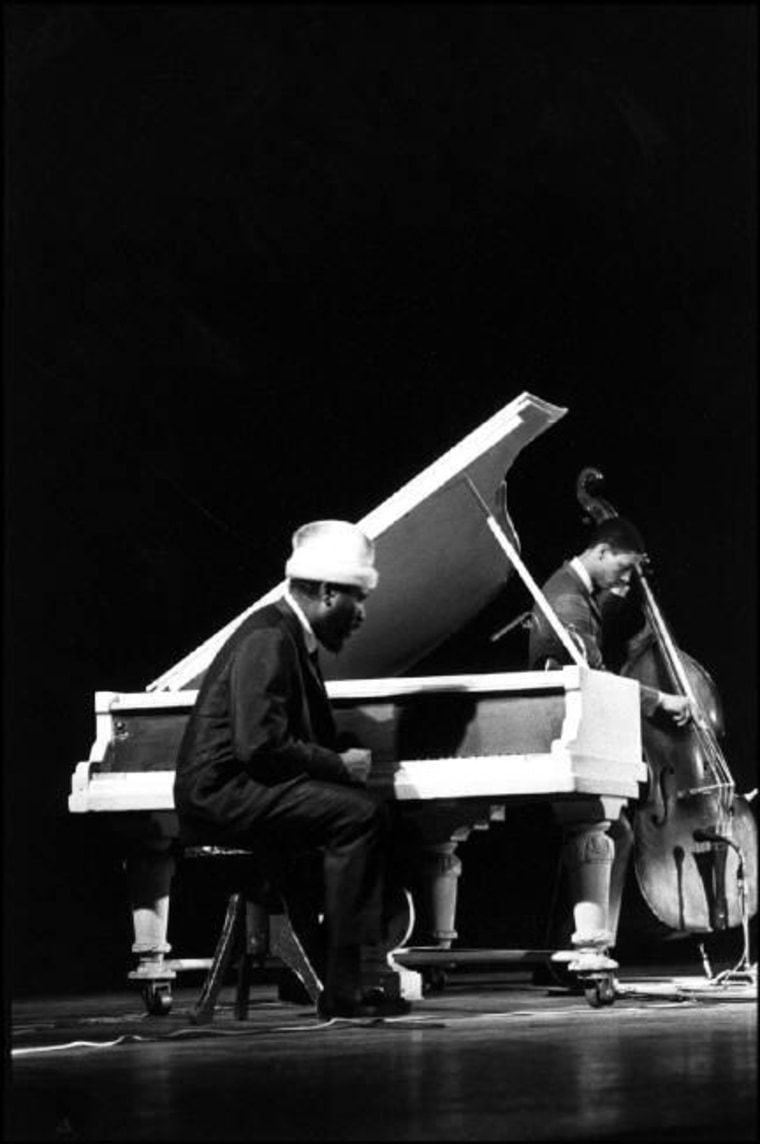“I really enjoyed working with Herbie Hancock—he was nice to be around, he was nice to talk to," says Butch Warren, matter-of-factly. "But he went with Miles Davis and I went with Thelonious Monk, and I didn't get a chance to play with him anymore. I was on his first hit record, "(Takin Off’) Watermelon Man." And that's about the biggest thing I've done, that one hit record."
It's somewhat of an understatement. Warren's extraordinary recording career as an upright bassist may have lasted only six years, but he was part of a distinctive decade at , where he recorded more than 35 albums, his name appearing alongside some of the top names in jazz: Sonny Clark, Kenny Dorham, Donald Byrd, Dexter Gordon and dozens of others.
Herbie Hancock fondly remembers his early years with Butch Warren. “Butch was always eager to expand his musicianship and creativity," he says. "I remember his bright smile and warm personality that helped make him a joy to work with. For a short while, he, [drummer] Billy Higgins and I were the new "house" rhythm section for Blue Note Records. Although his formal music education seemed to me to be somewhat limited, his capacity to grow through experience was not. He was the kind of bass player that you could always depend on for the "groove." Consistently, he and Billy Higgins were always tearing it up for the jazz fans. The crowd loved to hear them play.”
But in 2006, Washington Post writer Marc Fisher discovered Warren drifting in and out of DC jazz clubs and called him
So what happened in the four decades in between?
In May of 1963, Warren—then only 24 years old—got his big break when he was asked to rush down to the Birdland jazz club in NY to back Thelonious Monk. Monk's wife Nellie was usually on hand to record the newbie so that later Monk could decide whether they would make the gig. It was not uncommon after reviewing tapes that players would be let go, but Warren was asked back. Their relationship endured over a year, one that included a successful tour to Japan and Europe.
When they returned, Butch regularly backed up Monk at the renowned Five Spot Jazz Club on Manhattan's Lower East Side, a gig that helped land Monk on the cover of Time magazine in 1964, when he was finally crowned the architect of Bebop. Time's critic lauded Butch's playing, writing: "Warren's rich, loping bass is well suited to Monk's rhythms if not his harmonic ideals; he is like a pony in pasture who traces his mother's footsteps without stealing her grace."

But American jazz was undergoing a revolution, from Monk's Bebop to Free jazz. And Butch Warren was experiencing his own internal turbulence. It is still unclear today what happened next—whether it was Warren's schizophrenia taking hold, or musical differences with Monk over wanting to play more “arco” (playing the bass with a bow, which Monk did not particularly like), but Warren moved on. He spent time in mental institutions, on the streets, and in poor health. He lost touch with his family and most of his music colleagues.
It has been almost two years since Warren has been out of the mental institution. If he takes his medication, his playing gets better every day. But life remains a struggle: these days, Warren plays music four nights a week—not because he loves the bass ("like a woman," he says, only half-jokingly)—but just to make ends meet.